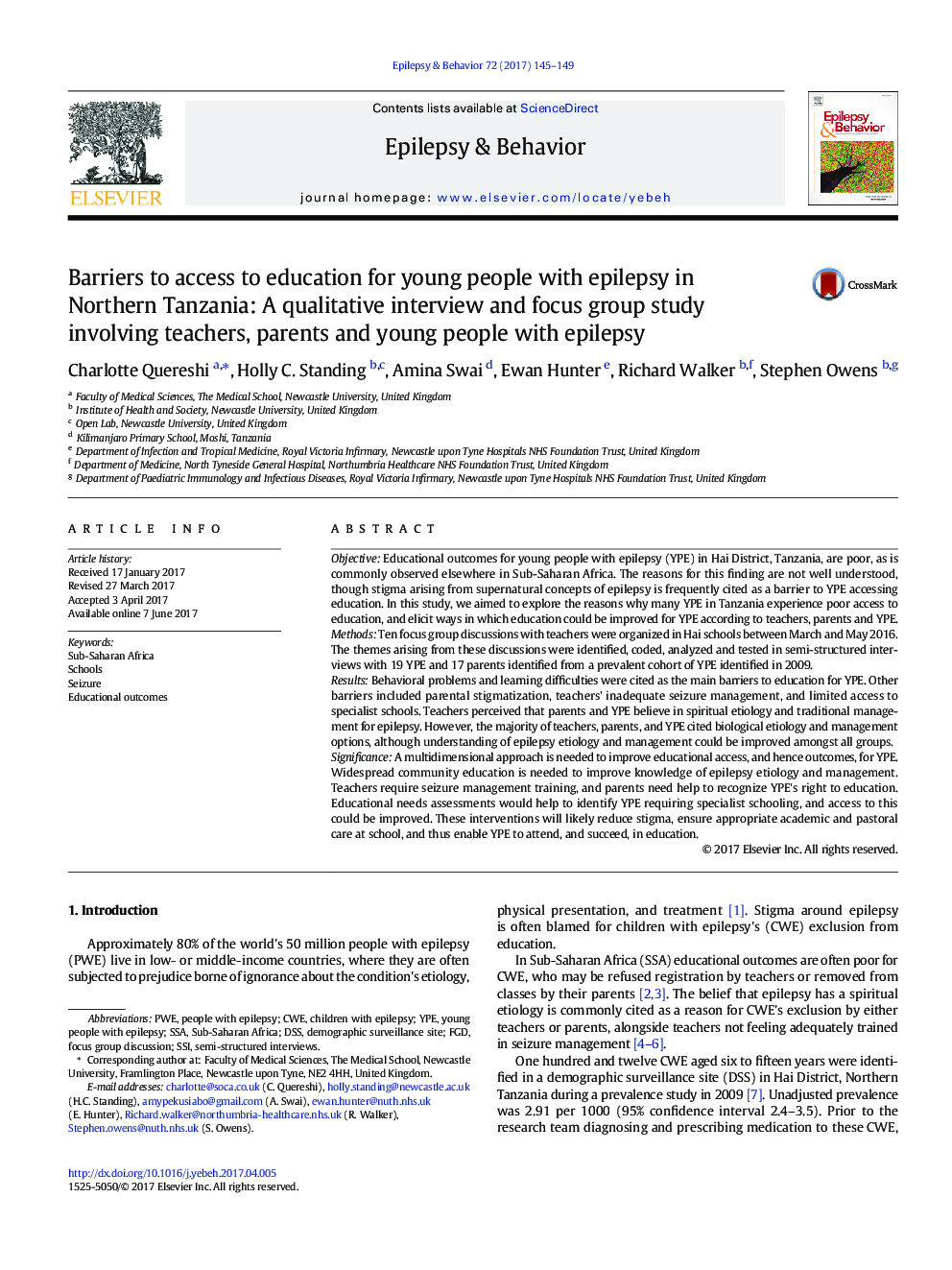| کد مقاله | کد نشریه | سال انتشار | مقاله انگلیسی | نسخه تمام متن |
|---|---|---|---|---|
| 5628261 | 1579821 | 2017 | 5 صفحه PDF | دانلود رایگان |
- Young people with epilepsy in Hai District have reduced access to education.
- This work compares views of teachers, parents and young people with epilepsy.
- Teachers wrongly perceived parents to believe epilepsy has spiritual etiology.
- Many young people with epilepsy did not attend school due to learning difficulties.
- Teachers' descriptions confirmed their seizure management was poor.
ObjectiveEducational outcomes for young people with epilepsy (YPE) in Hai District, Tanzania, are poor, as is commonly observed elsewhere in Sub-Saharan Africa. The reasons for this finding are not well understood, though stigma arising from supernatural concepts of epilepsy is frequently cited as a barrier to YPE accessing education. In this study, we aimed to explore the reasons why many YPE in Tanzania experience poor access to education, and elicit ways in which education could be improved for YPE according to teachers, parents and YPE.MethodsTen focus group discussions with teachers were organized in Hai schools between March and May 2016. The themes arising from these discussions were identified, coded, analyzed and tested in semi-structured interviews with 19 YPE and 17 parents identified from a prevalent cohort of YPE identified in 2009.ResultsBehavioral problems and learning difficulties were cited as the main barriers to education for YPE. Other barriers included parental stigmatization, teachers' inadequate seizure management, and limited access to specialist schools. Teachers perceived that parents and YPE believe in spiritual etiology and traditional management for epilepsy. However, the majority of teachers, parents, and YPE cited biological etiology and management options, although understanding of epilepsy etiology and management could be improved amongst all groups.SignificanceA multidimensional approach is needed to improve educational access, and hence outcomes, for YPE. Widespread community education is needed to improve knowledge of epilepsy etiology and management. Teachers require seizure management training, and parents need help to recognize YPE's right to education. Educational needs assessments would help to identify YPE requiring specialist schooling, and access to this could be improved. These interventions will likely reduce stigma, ensure appropriate academic and pastoral care at school, and thus enable YPE to attend, and succeed, in education.
Journal: Epilepsy & Behavior - Volume 72, July 2017, Pages 145-149
